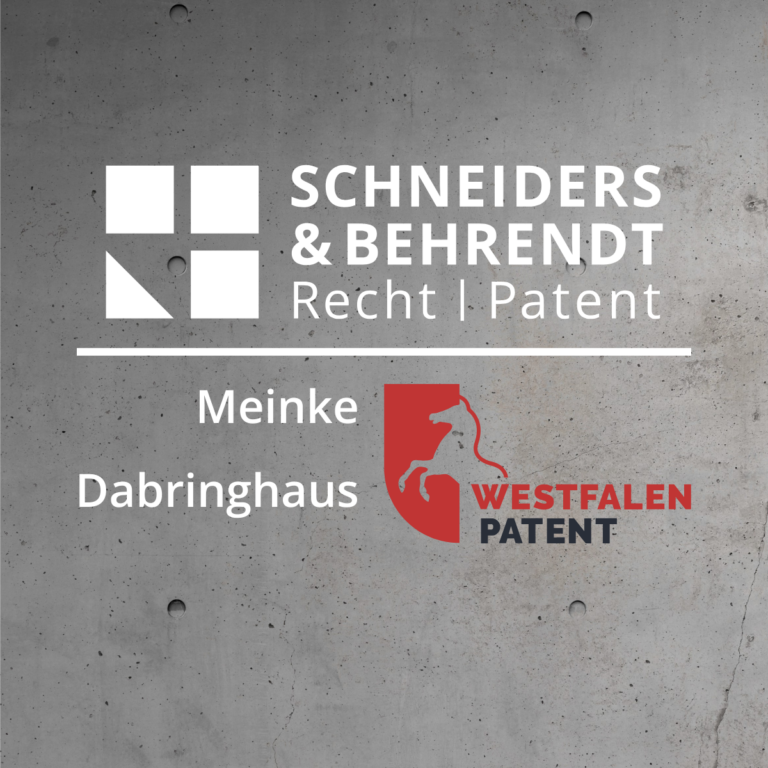Managing directors, board members and supervisory board members are liable without limitation with their private assets even in cases of slight negligence. In the worst case scenario, this could mean the destruction of their livelihood. Many companies have taken out D&O insurance for their managers. This article outlines how manager liability insurance works in the event of a claim. The following points are of particular importance:
Definition of insured event
The insured event occurs when a claim is first made in text form against the insured persons for a loss due to an (alleged) breach of duty that they have committed in the course of their work for the policyholder or subsidiaries. Managing directors, board members and supervisory board members belong to the group of insured persons.
Internal liability cases
In most D&O claims, the claim for damages relates to so-called internal liability cases. Managers must perform their duties with the diligence of a prudent businessman. If they breach this duty and cause damage to their company as a result, they are liable to the company. In the case of a public limited company, the basis for a claim arises from § 93 Paragraph 2 AktG: Members of the Management Board who breach their duties are jointly and severally liable to compensate the company for the resulting damage. If it is disputed whether they have exercised the diligence of a prudent and conscientious manager, the burden of proof lies with them. § 43 GmbHG applies to managing directors of a GmbH: Managing directors must exercise the diligence of a prudent businessman in the affairs of the company. Managing directors who violate their obligations are jointly and severally liable to the company for the damage incurred.
In cases of internal liability, the D&O insurance claim is triggered if a claim is made against the Management Board on the basis of a Supervisory Board resolution. In the case of a GmbH, the claim is made on the basis of a resolution by the shareholders’ meeting.
External liability cases
Most external liability cases concern actions brought by insolvency administrators. These usually involve claims for reimbursement against (former) directors of the insolvency debtor for delay in filing for insolvency pursuant to § 15 b InsO. The insolvency administrator must generally pursue such claims in court. In practice, the actions are often brought according to the motto “insurance breeds claims” only because the insolvency debtor has taken out D&O insurance for the directors and officers. Sometimes the D&O insurance policy is virtually the last asset that the insolvency administrator can fall back on.
Claims notification and obligations in the event of a claim
In the case of insured events, the insured persons concerned must notify the insurer immediately of the occurrence of an insured event. After the occurrence of the insured event, the insurer may demand that the insured persons concerned provide any information that is objectively necessary to determine the insured event or the extent of the insurer’s obligation to pay benefits.
Claims are reported either directly to the insurer or to the insurance broker. The insurance broker named in the insurance policy is authorized to accept notifications, declarations of intent and payments from the policyholder with effect for the insurer as well as notifications and declarations of intent from the insurer with effect for the policyholder and is obliged to forward these immediately to the insurer or the policyholder.
Tasks and function of the insurance broker in the event of a D&O claim
According to the case law of the BGH, the insurance broker is the fiduciary trustee of the policyholder. In the event of a claim, the broker stands in the camp of the injured policyholder and therefore cannot act on behalf of the insured persons. In practice, specialized D&O insurance brokers take on so-called monitoring tasks for the insured companies in the event of a D&O claim in order to ensure that the cover functions properly. In particular, this involves taking on coordination and moderation tasks in the negotiations between the policyholder and the insured persons, their legal representatives and the associated correspondence with the insurers.
Value proposition of the D&O policy
The insurance cover includes the defense against and the exemption from liability claims. The defense and indemnification function is the insurer’s primary obligation under the contract. The insurer has the right to choose whether to defend or indemnify. In most cases, the insurer exercises its right of choice by pursuing the defense. The defense includes the assumption of judicial and extrajudicial costs of the defense against a liability claim (defense costs). These include in particular the remuneration of lawyers. The insurer is obliged to indemnify against liability claims if these prove to be justified. Obligations to pay compensation are justified if the insured persons are obliged to pay compensation by law, legally binding judgment, acknowledgement or settlement and the insurer is bound by this.
Choice of lawyer
The German Insurance Contract Act (VVG) regulates the free choice of lawyer in § 127 Paragraph 1:
“The policyholder is entitled to freely choose the lawyer who is to represent his interests in court and administrative proceedings from the group of lawyers whose remuneration is borne by the insurer under the insurance contract. This shall also apply if the policyholder can claim legal protection for the representation of other legal interests.”
D&O insurers generally leave the insured persons free to choose their own lawyer. However, many insurers regulate the specific choice of lawyer with rights of consent and objection. There are still standard D&O insurance conditions that only provide for a claim for reimbursement in accordance with the German Lawyers’ Fees Act. Lawyers specializing in directors’ and officers’ liability usually charge on an hourly rate basis and not in accordance with the German Lawyers’ Fees Act. Good D&O insurance conditions therefore stipulate that no agreement with the insurer is required with regard to the choice of lawyer and the fee agreement if the lawyer is arranged via a lawyer panel accepted by the insurer.
Court of arbitration
Good D&O insurance conditions offer the option of institutionalized arbitration proceedings. Here is an example clause from the insurance market:
“If the claim is made by the policyholder and the question of liability is decided in arbitration proceedings in accordance with the Arbitration Rules and the “Supplementary Rules for Expedited Proceedings of the German Institution of Arbitration (DIS)” to the exclusion of recourse to the ordinary courts of law, the insurer shall be bound by the decision of the arbitration tribunal in addition to the parties to the arbitration agreement or proceedings.”
One advantage of D&O arbitration proceedings is the possibility of having liability and, if applicable, coverage clarified in a binding manner in a D&O case in a uniform procedure. The duration of proceedings in an average complex D&O case at first instance before a regional court is at least 1,5 to 2 years; the total duration of proceedings including appeal before state courts is often between 2 and 5 years (without appeal to the BGH). At best, the question of liability is then clarified. In some cases, disputes under cover law follow – e.g. on the question of a possible exclusion of intent. Arbitration proceedings, on the other hand, are much quicker. Many cases are concluded in less than a year. (Cf. Lange, VersicherungsPraxis 12/2019 | 1/2020, p. 16 et seq.) One possible disadvantage to be noted is that arbitration proceedings generally do not allow for notices of dispute.
Direct action
The company can have the D&O cover claim assigned to it by the insured person and then take direct action against the D&O insurer. The direct process was recognized by the BGH ( IV ZR 304/13, Urt. ) expressly recognized. In this case, a limited liability company had claimed damages from the manager concerned and had him assign the claim for cover against the D&O insurer. With a direct action against the D&O insurer, the injured company then aimed solely at the sum insured and not at the manager’s private assets. The policyholder previously failed with this approach at the Higher Regional Court of Düsseldorf (31.01.2014 – I-4 U 176/11). In the opinion of the OLG, an insured event requires that the manager is “seriously” claimed against, i.e. with a lawsuit and, if necessary, enforcement against the private assets. This is intended to prevent the company and manager from “agreeing” on a liability case in order to obtain the sum insured (so-called “friendly understanding”). On the other hand, the BGH stated in its landmark decision that the policyholder may also aim exclusively at the insurance cover. The fundamental problem of a “friendly understanding” does not justify a requirement for the existence of an insured event that goes beyond the D&O insurance conditions. In the opinion of the BGH, the limit of collusion is only exceeded if the injured company and the manager concerned are actually aware that the alleged claim for damages does not exist. According to the latest (albeit not undisputed) case law of the Higher Regional Court of Cologne ( 9 U 206/22, Urt. ), the statutory reversal of the burden of proof applies analogously in direct proceedings. This strengthens injured companies in direct disputes with their D&O insurers. The insured company and the manager may have already made provisions for the assignment of a coverage claim in the management board or managing director’s employment contract.
Exclusion of intent or knowledge
D&O policies always contain an intentional or knowing exclusion clause. According to this clause, no insurance cover is granted in the event of an intentional or knowing breach of duty. This means that the D&O insurer will neither pay the defense costs nor indemnify the insured person. If it transpires in liability proceedings or coverage proceedings that a manager has intentionally or knowingly breached his duties, the manager concerned must reimburse the legal protection costs already incurred by the D&O insurer and the company bringing the action does not benefit from the loss compensation function of the D&O insurance despite the manager’s conduct being in breach of duty and causing damage.
Pre-contractual breaches of obligations
Another risk under cover law is the so-called pre-contractual breach of obligations. When taking out the insurance, the D&O insurer asks in particular about known breaches of duty. The board member or managing director responsible for taking out D&O insurance must answer the question as to whether they are aware of any breaches of duty or circumstances that could lead to a claim. Incorrect information in this regard can later lead to the loss of insurance cover.
Comparison of liability and cover
Statistics on D&O claims settlement practice show that there is a clear liability situation in only 7% of reported D&O cases. Around 70% of payments from D&O policies relate to legal costs. More than 90 % of claims for damages are settled. One example of this is the well-known D&O claim “VW Dieselgate”. The Supervisory Board of Volkswagen AG had decided to claim damages from the former CEO Winterkorn (and others) for breach of duty of care under stock corporation law because, in the opinion of the Supervisory Board, he had failed to immediately and comprehensively clarify the background to the use of unlawful software functions. This case also resulted in a liability and coverage settlement. The main content of the settlement agreements was published in a joint report by the Supervisory Board and the Board of Management of Volkswagen AG and is available here.
Own damage cover
Own damage cover relates to cases in which the injured company cannot hold the manager liable. The following case constellations apply:
- The employment contract of the managing director of a GmbH stipulates that the managing director is liable to the company from the degree of culpability of “gross negligence”. The manager commits a breach of duty through simple negligence that results in damage to the company.
- The unpaid board of directors of an association causes financial damage to the association through a simple negligent breach of duty. The statutory regulation in § 31a BGBprovides for an exemption from liability for the management board.
Within the scope of the own damage cover clause, the insurer offers insurance cover for losses due to breaches of duty committed by insured persons, insofar as their liability is excluded solely because the policyholder or subsidiaries have legally exempted/released them from liability before committing the breach of duty (e.g. in the employment contract). The own damage cover shall also apply if the policyholder or subsidiaries waived the assertion and/or enforcement of claims with legal effect before the policyholder or subsidiaries became aware of the breach of duty. The same applies in the event of a statutory exemption from liability – e.g. that of § 31a Paragraph 1 BGB.
The own damage cover also applies insofar as insured persons are exempted from liability towards the policyholder or subsidiaries on the basis of the principles of internal loss equalization. According to the BGH (judgment of 25.06.2001 – II ZR 38/99 and of 14.03.1983 – II ZR 103/82)), the principles of internal compensation also apply to executive employees. For managing directors and board members, it is questionable whether case law can correct the strict liability standard and, based on the principles developed in labor law for the limited liability of employees in the case of “operational” damaging acts, achieve a corresponding reduction in liability for board members by way of judicial development of the law. The OLG Zweibrücken (4 U 198/21, r+s 2023, 124 ) ruled that the managing director sued for damages in the specific case had acted with slight negligence, but had not breached any duty that she had in her capacity as managing director. The case concerned a bank transfer. In the opinion of the Senate, this was usually the task of the accounting department; the company management was not affected. For such activities, which could just as easily have been carried out by a third party and which were only carried out by the management on occasion, the Senate ruled out directors’ and officers’ liability with reference to a literature opinion, among other things. As no appeal has been lodged, the fundamental question remains unresolved.
Litigation financing
For insured companies, litigation funding is playing an increasingly important role in D&O claims practice. A second opinion from an independent litigation financier can be valuable as part of the claims assessment and risk analysis. The object of litigation financing is the agreement that a financing company assumes the plaintiff’s litigation risk in return for payment of a share of the proceeds. If the plaintiff wins, the litigation financier receives a share of the claim as a revenue share, the amount of which is to be determined in advance in the litigation financing agreement on a percentage and/or staggered basis. If the plaintiff is unsuccessful, the litigation funding company pays the court costs and the statutory fees of the plaintiff’s and the opposing attorney. The details are to be regulated in a litigation financing agreement, which is to be adapted to the individual case and concluded between the plaintiff and the litigation financing company. The advantage of using a litigation financier for a company that is basically ready to sue is that the latter – without being subject to conflicts of interest – will carry out a neutral review of the lawsuit based solely on the prospects of success of the lawsuit and the recoverability of the claims. In this respect, the negative vote of a litigation financier may in individual cases give cause to re-examine the prospects of success of the action.
Conclusion and recommendation for action
Insured companies must report the D&O insurance claim immediately. The claim should be reported via a lawyer.





